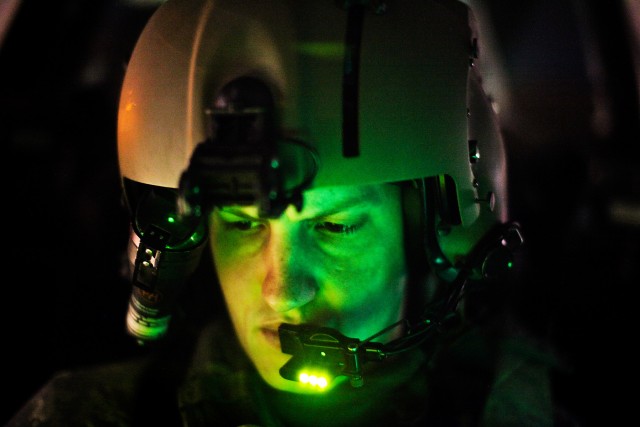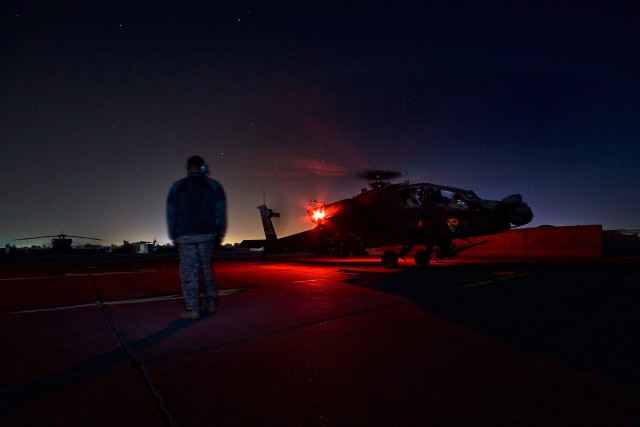CAMP TAJI, Iraq -- The United States Army is one place where a 20-year-old is allowed to fly one of the most advanced helicopters in the world.
Joining the Army as a teenager, now Chief Warrant Officer Aaron Fouquette was going to find a way to take advantage of this little know fact.
"I was always fascinated with flying when I was a little kid, so I knew I wanted get into aviation and fly in some shape or form," said Fouquette, an AH-64D Apache attack helicopter instructor pilot with 4th Battalion, 227th Aviation Regiment, 1st Air Cavalry Brigade, 1st Cavalry Division.
"I grew up on a naval base and my next door neighbor was an Army recruiter," said the Jacksonville, Fla., native. "He was interested in getting me to join the Army and showed me the high school to flight school program."
"A lot of people don't even know about the program," said Fouquette. "I didn't know about it either; I always thought that I had to go to college and then go to flight school - if I was lucky enough to get selected to go to flight school."
The recruiter took the time to set up the warrant officer packet, which includes the interviews, flight physicals and the tests, to get into the Army flight school, he said.
Fouquette was originally assigned to fly the OH-58 Kiowa Warrior helicopter, but after a little persistence he was able to get into the AH-64A Apache attack helicopter training course.
With a combination of being isolated in the crew station, looking through the top of the canopy while flying forward and the instructor's aggressive flying style - at 20 years old - it became clear that flying an Apache was the right choice, said Fouquette.
"At the time, I had pretty much gotten what I wanted; I had [gotten] into aviation and I was flying one of the most advanced aircraft, at least helicopter-wise, in the world," said Fouquette. "To be honest, I thought I was pretty good at flying until I got to my first unit."
In 2003, at 21 years old, and only a couple months out of flight school, Fouquett deployed for the first time. The only responsibilities he had as a front-seat pilot were operating the radios and weapons systems.
But now, at the age of 27, with more than 36 months of combat experience from Operation Iraqi Freedom under his belt, his role has changed and Fouquette is now molding the young aviators into experienced pilots.
"I'm now an instructor pilot, air mission commander [and] mission briefer, and looking at peers that are 21 now, I definitely see a difference in the maturity level," said Fouquette. "Basically I am in charge of our junior aviators and their upbringing. I guess with responsibility comes maturity."
"I was going to get out of the military after my second deployment," said Fouquette. "I just couldn't do it though; I really enjoy flying this aircraft, being with the people I am currently with and I don't have any regrets in anything I've done."
Because of Fouquette's determination to become an aviator and the Army route he decided to take, the feeling of success came to him at an early age.
"Early on it was interesting to return home and see friends just hanging out or just starting college and figuring out what they wanted to do," said Fouquette. "I was already set up in a career, moving forward with flight progression and being set up financially. I felt like I was ahead of the program in regards to that."
"I think I have been rather successful since an early age in doing what I love - and that is flying," said Fouquette. "Let alone flying a Longbow Apache, which is by far the most advanced helicopter in the world."




Social Sharing